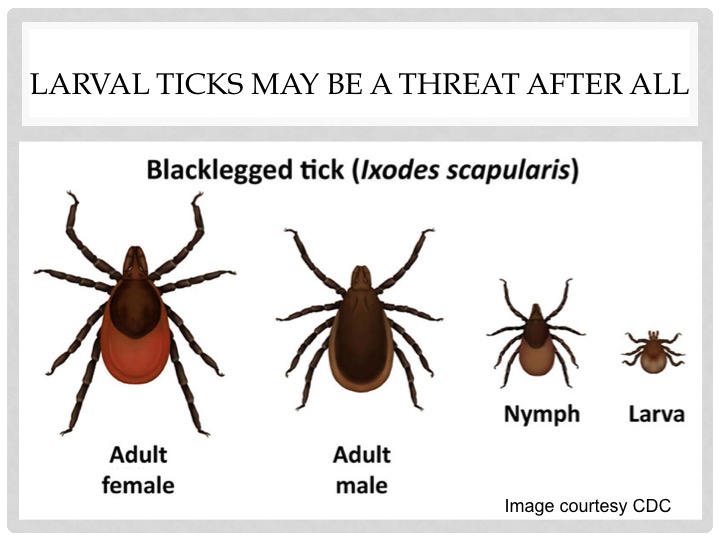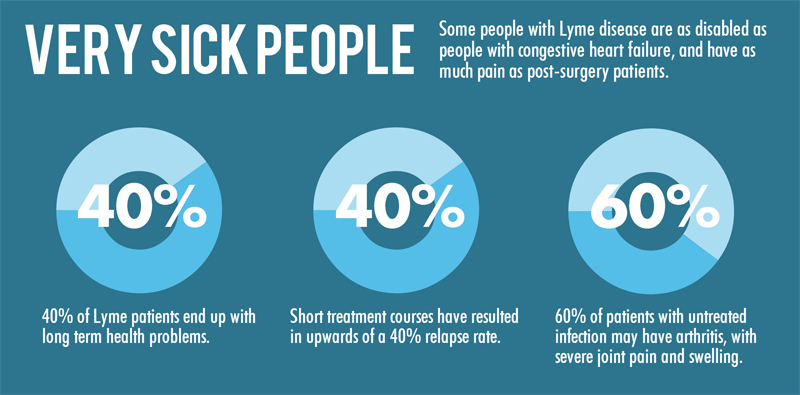Study volunteers with newly diagnosed Lyme disease needed
The two-tier Lyme disease criteria introduced in 1994 proved to be a poorly sensitive test in actual practice. Studies have shown that only one-third of all well-characterized cases of Lyme disease are positive by the two-tier Lyme disease test. Over the past few years, an increasing number of tests have been introduced to improve the reliability of serologic tests for tick-borne illnesses. These tests include PCR, t-cell, and antigen detection tests.
Physician-turned-patient becomes Lyme advocate
Dr. Neil Spector, a leading researcher and oncologist at Duke University Medical Center, suffered sudden and severe heart problems brought on by Lyme carditis. For years, he went undiagnosed, enduring the waxing and waning of cardiac symptoms, until one day, his situation became so dire, he required a heart transplant. Now recovered, Dr. Spector has become a vocal supporter for other Lyme disease patients, as he shares the realities of Lyme disease in his memoir, Gone in a Heartbeat.
Hundreds of Lyme disease patients in Tennessee
The incidence of Lyme disease (LD) in Tennessee was 7.7 times higher than that reported to the Tennessee Department of Health (TDH) from 2000–2009 in a study reported in the 2013 Journal of the American Medical Informatics Association. [1]
Most cases consistent with Lyme disease are not tested in non-endemic region
A study published in the July issue of Clinical Infectious Diseases examines whether or not positive Lyme disease tests are of diagnostic value in regions, such as North Carolina, that are not considered endemic for the disease. Upon review of the data presented, the reader can better understand the frequency of Lyme disease testing in regions considered to have a low incidence of the illness.
Back yards at risk of migrating deer ticks
The expansion of deer ticks into new geographical regions has been the subject of much research, as Lyme disease cases continue emerging in areas once thought to be free of Borrelia burgdorferi-infected ticks. Studies report that migrating birds are carrying ticks long distances. But could ticks be migrating short distances into your back yard?
Chronic Lyme disease patients want to be treated, not ‘managed’ by physicians
Over the past month, a series of articles, focusing on multiple aspects of Lyme disease, from pediatric Lyme to chronic Lyme to life after Lyme, have been published in the May and June issues of Infectious Disease Clinics of North America and Clinical Infectious Diseases. The articles echo messages that, for the most part, minimize a disease that impacts hundreds of thousands of people each year -- many of whom are children.
What is that smell?
It may not seem like an especially concerning or troublesome symptom. After all, what's the big deal about having superpower smelling abilities? You can smell the flowers, the gourmet food, and the freshly brewed coffee better than anyone else. But, for many patients hyperosmia is not a blessing and is more than a simple annoyance. It can cause extreme discomfort, even making patients sick at times.
Larval ticks may be a threat after all ─ insights based on study of Borrelia miyamotoi
The tiny larval tick has never been considered a threat to humans. Experts had long believed that an adult female tick could not pass on any infections to the eggs and larvae. As a result, ticks in the larva stage were thought to be free from carrying diseases and therefore, harmless. But that may not necessarily be the case, according to a case series by Philip Molloy, MD and colleagues, published in the Annals of Internal Medicine. [1]
New study by guidelines author dismisses risk of chronic Lyme disease
There is a growing body of evidence demonstrating the existence of chronic manifestations of Lyme disease. These studies have found that the Borrelia burgdorferi (Bb) infection can cause chronic illness, even when the standard 14- to 21-day antibiotic treatment regime is initiated in the early stages of the disease. [1,2] Additional research has also found that these patients have a high risk of an impaired quality of life. [3,4]
What happens to the brain during acute Lyme neuroborreliosis?
A group of researchers from Tulane National Primate Research Center in Louisiana injected live Borrelia spirochete into rhesus monkeys and discovered that inflammation plays a “causal role” in the pathogenesis of acute Lyme neuroborreliosis. Their findings were published recently in The American Journal of Pathology.













